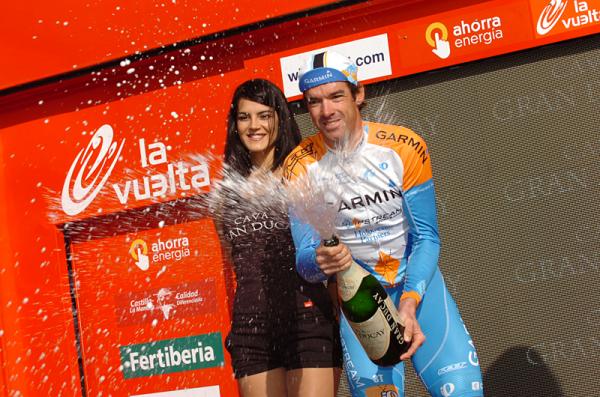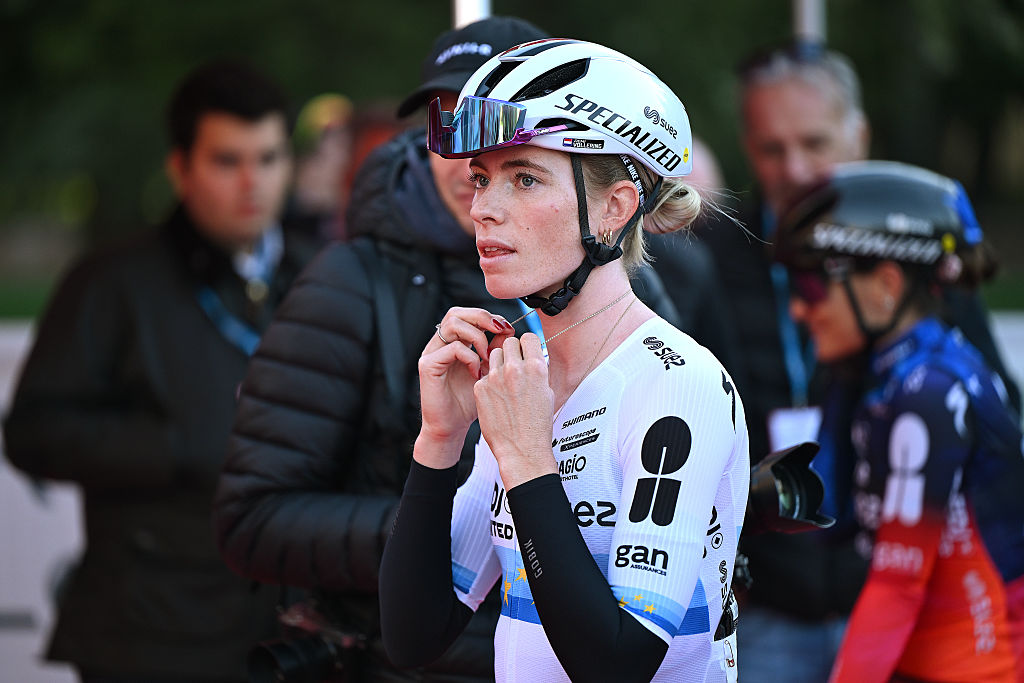Millar: Pro cycling cleaner than it's ever been
Despite new beginnings, cycling's dark history cannot be forgotten
The latest race content, interviews, features, reviews and expert buying guides, direct to your inbox!
You are now subscribed
Your newsletter sign-up was successful
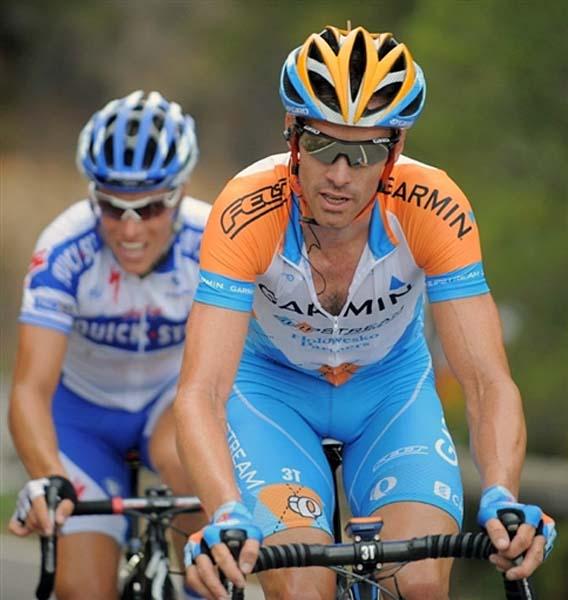
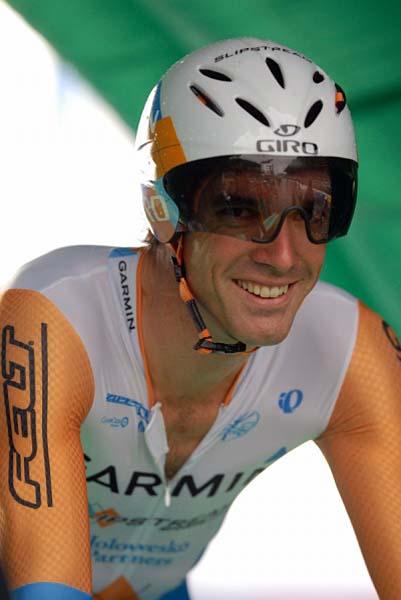
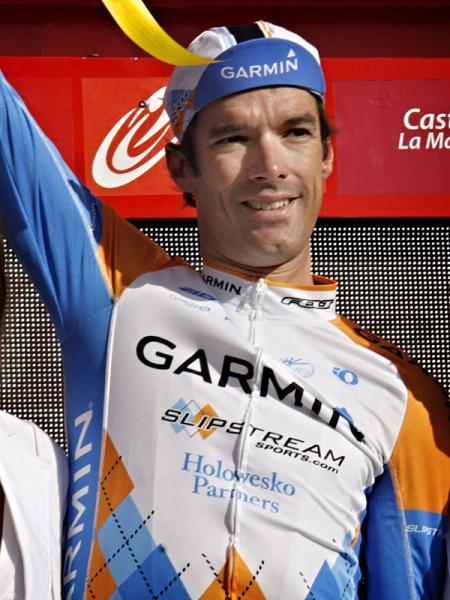
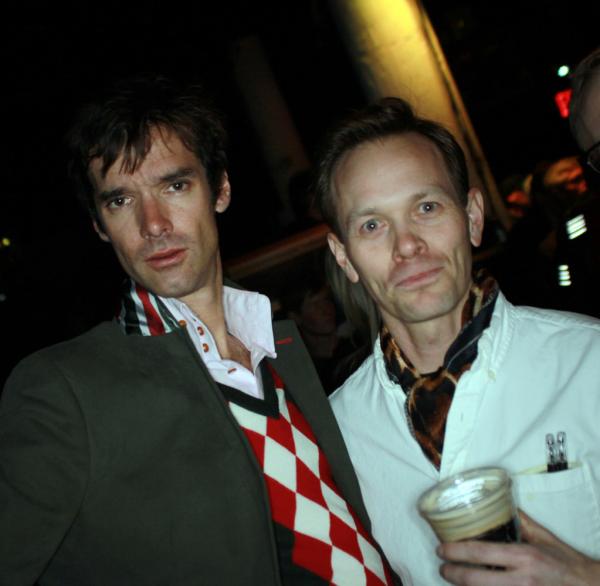
The sport of cycling has arguably suffered more than any other sport from the scourge of doping, and as the antidoping authorities finally begin to get ahead of the dopers (or so we hope) it seems as if the war is being won. One person who believes that this is the case is David Millar, and as a member of the World Anti-doping Authority's Athlete's Committee, he should know.
Millar takes Toledo time trial, Valverde secures Vuelta overall win
Millar critical of Wiggins' departure
He also is far too familiar with the dark, destructive side of the sport, the one that is full of syringes, vials and pills. Millar has been down that road, having served a suspension for admitting to EPO use in 2004, but unlike some of his contemporaries - Marco Pantani, Jose Maria Jimenez and Denis Zanette - he survived.
Millar has been an outspoken proponent of the anti-doping cause since his suspension, and sees promise for the new generation of professional cyclists.
"We're in a very healthy place in professional cycling. It's much cleaner than it's ever been," he tells Cyclingnews. "The young professionals coming in are not going to face these huge doping dilemmas. They'll very rarely even see a syringe in their lives as professional athletes, which would have been mindboggling to even consider a few years ago."
Yet even with such optimism, he has a stern warning for those who think the doping fight is over: "It's quite easy to become complacent, but one thing we must never do is to forget our past.
"We can't think it's always been like that," he says of the new culture. "We have a huge history behind us, we've gone many dark places. The day we forget about that is the day it will start happening again."
Recently, the UCI's anti-doping head Anne Gripper expressed her optimism about the effectiveness that her agency's biological passport programme has had with reducing doping in the peloton. While no rider has been suspended based solely on irregular blood values, the UCI has been employing targeted testing on riders with suspect readings and has found a number to be positive for EPO.
The latest race content, interviews, features, reviews and expert buying guides, direct to your inbox!
While some may take this as a depressing indication that doping is still prevalent in the peloton, Millar has focused a longer lens on the issue: cycling has been to the brink of implosion due to doping as recently as two years ago, and in response it has created a system that has changed the sport entirely.
"The biological passport is incredible. Professional cycling is ironic in that it's become the vanguard of anti-doping in sports. We're so cutting edge, we're pushing the envelope of what anti-doping is," he explains. "We have been the sport that has created the biological passport and made it a reality. Cycling should be proud that we've done that. We did it out of our own necessity; we had to do it in order for the sport to continue.
"With the biological passport we've created something that all sport can benefit from, across the board. The day that every single professional athelete has a biological passport is the day we can be reasonably sure we're dealing with a majority of clean athletes."
With the next summer Olympic Games heading to his country in 2012, Millar hopes that every sport will follow cycling in the drive to use this new paradigm to detect and deter doping.
"If the 2012 Olympic Games uses the passport, that would be huge. It would be so beneficial to young athletes and talented people who deserve to achieve their dreams."
Down the rabbit hole
Millar was practically an instant success in professional cycling. He established himself early as a time trial specialist, winning the prologue of the Tour de l'Avenir twice in his first years, and was just 23 years old when he took his first Tour de France stage win in 2000 and wore the race leader's yellow jersey.
By age 24, still young enough to qualify for best young rider, he was wearing Cofidis' number 1 bib as leader of the team for the 2001 Tour de France in the hope he could repeat his prologue victory. His crash and failure to win only intensified the pressure to follow up on those early results. Combined with his young age and lack of guidance, Millar chose to go down that dark path and use drugs to get results.
"I was a kid, I was just a teenager for most of my career. I was very lucky, I turned pro at 19 and was already very successful at a very early age. I totally dictated what I did when I wanted, I had no boundaries. I didn't care about anything - not money, not results," he says.
"Teams are much more responsible now - at least ours is. I don't know about other teams. I take a great deal of pride making sure the young guys aren't like I was when I was younger. I was just left - I was like a hired gun for Cofidis at a young age.
"I made a decision when I was banned; I decided if I was going to come back I had a responsibility to tell people about what happened to me, the mistakes I made, the regrets I had," continues Millar. "If I was going to come back, I was always going to have that baggage dragging behind me. I have been proud of what I've achieved and what I represent."
After his suspension, Millar faced the scrutiny of sceptics who doubted that he could duplicate his results without doping. That he's continued to score a big win each year - a stage of the 2006 Vuelta, the prologue of Paris-Nice in 2007, the team time trial in last year's Giro and a stage of this year's Vuelta - was not a surprise for Millar.
"You should be able to come back if you're talented. It never crossed my mind that I wouldn't be able to win races when I came back; 90 percent of my career was built without doping. There was 10 percent of my career where I doped and got big wins, but I also got big wins without doping ... I just got lazy, copped out and found myself in a bad place with bad people that dictated my doping."
Changing roles
Since signing on with Jonathan Vaughters' team in 2008, Millar has gradually backed off from his personal ambitions and taken increasing pride in working for his teammates, especially Christian Vande Velde, with whom he has become quite close.
The role seems to suit Millar well and the nature with which he speaks about it adds a mature lustre to the Brit's appeal. This coming from a rider once known for having the occasional meltdown, the most famous being during 2002 when, crash-pained, he made it to the top of the Angliru on the Vuelta's 15th stage after lying in 10th overall, only to stop one metre from the line in protest of the extremely poor conditions riders were forced to race in - he was given a DNF.
The 2009 model David Millar seems less finicky, one to quietly go about doing his job without complaint. The results may not have been apparent from the inside looking out, but Millar explains he's received attention for the new role.
"Loads of people said I had my best ever Tour de France this year. It surprised me, I didn't see it like that. I didn't win a stage, but I was up front all the time in all different situations - I was leading out sprints, being in breaks, dropping off guys at the bottom of the last climb. To me, it was just a really hard Tour de France. It's hard to be perceptive of our own achievements," he says.
"Looking after Christian and Wiggo [Bradley Wiggins] was hugely satisfying to me. I take a massive amount of pleasure looking after Christian, it's hard to explain - in this part of my career, I do take more satisfaction and pleasure in working for Christian than I do trying to achieve personal goals.
"It's odd, but a nice role reversal because I spent the majority of my career having guys look after me, and Christian has spent the majority of his career looking after other guys," he adds.
"I can see us spending the final years of our career doing that together - he'll look after me in the smaller races like Paris-Nice, but in big races I'll look after Christian."
When asked how many years he thinks he has left in his career, Millar says "a couple". At 32, he's far from one of the older riders in the peloton, but he seems content to serve out the next few years with the Garmin-Transitions team and then call it quits, perhaps vanishing from the public eye like his namesake and countryman, Robert Millar.
"I'll be doing a J.D. Salinger in two or three years. You won't find me. I don't know if I'll stay in cycling or not. Either I'll stick around forever, or I'll disappear and you might spot me on the side of the road at the Tour de France."

Laura Weislo has been with Cyclingnews since 2006 after making a switch from a career in science. As Managing Editor, she coordinates coverage for North American events and global news. As former elite-level road racer who dabbled in cyclo-cross and track, Laura has a passion for all three disciplines. When not working she likes to go camping and explore lesser traveled roads, paths and gravel tracks. Laura specialises in covering doping, anti-doping, UCI governance and performing data analysis.
